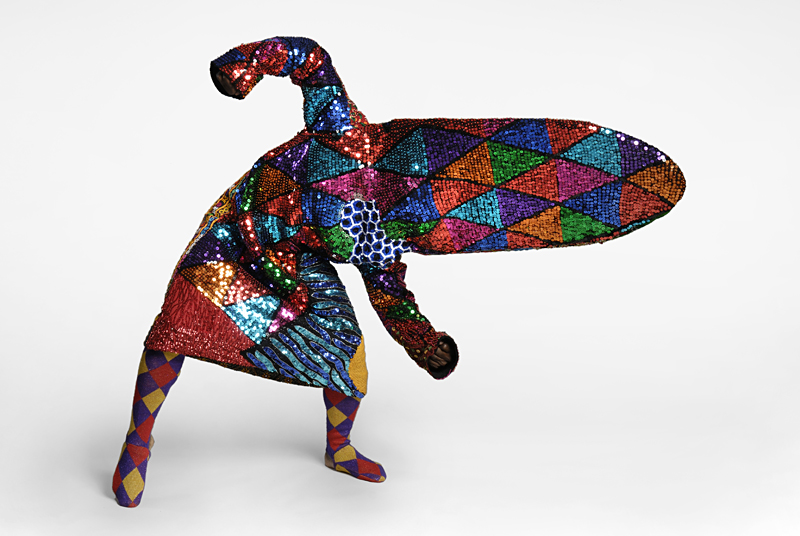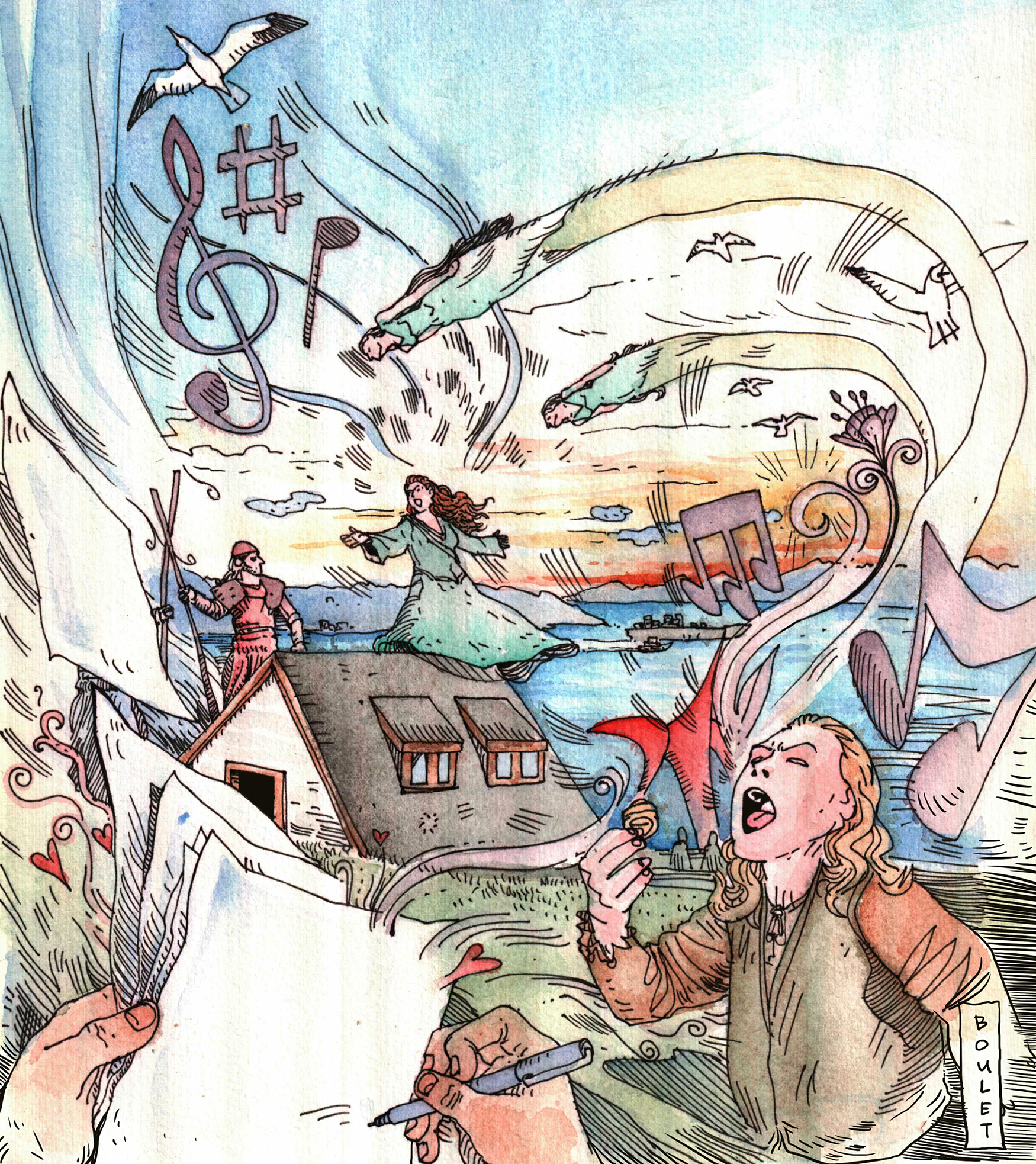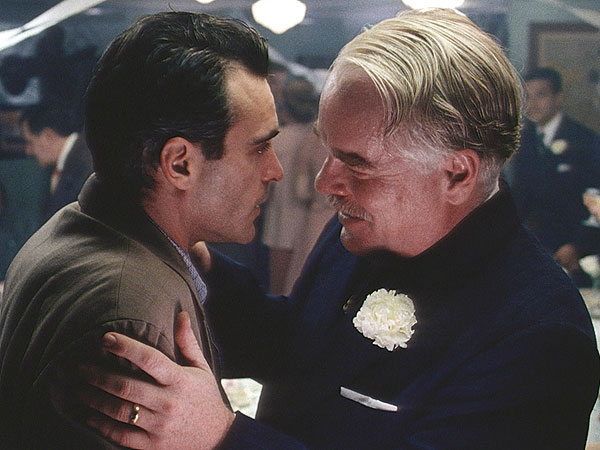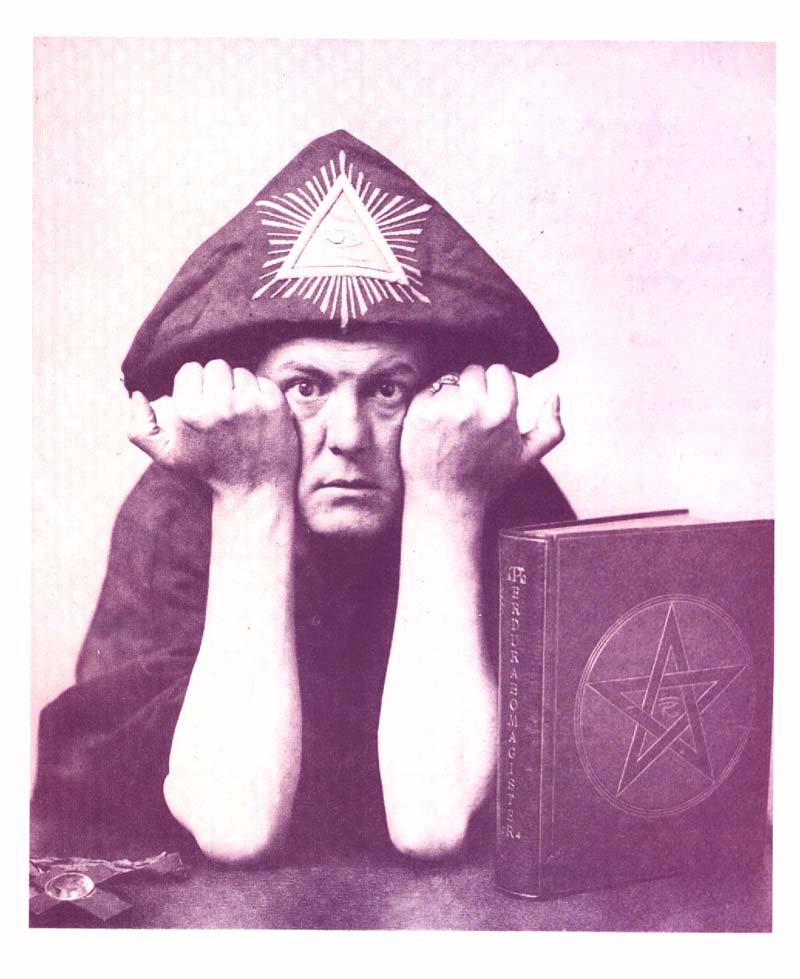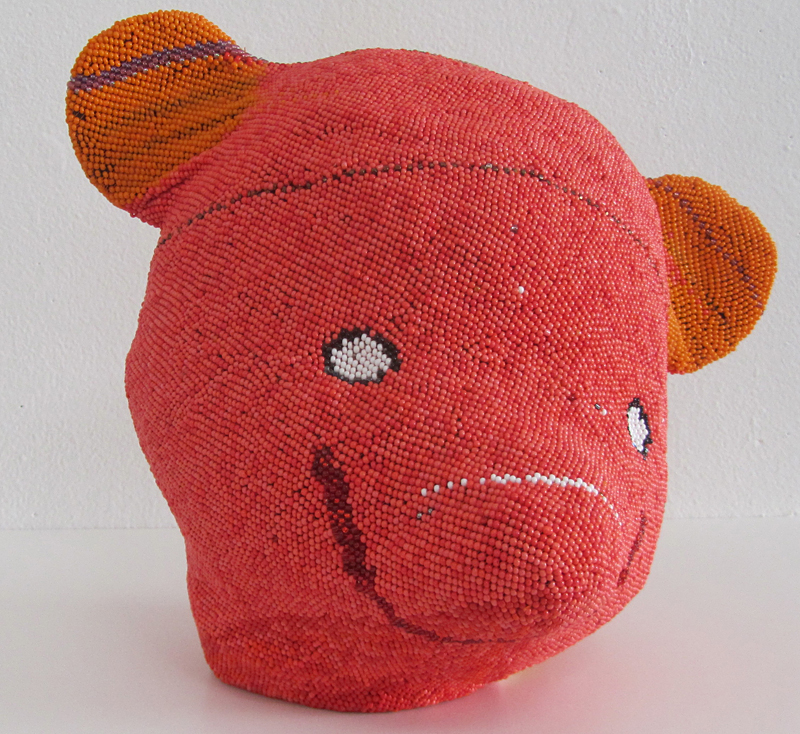WEDNESDAY 3/23
Visual Arts: Unquiet Garments
Even if it just leased its upstairs office space to Nordstrom, SAM—like every other cultural institution in town—needs popular shows. And Chicago artist Nick Cave—not the Australian rock singer!—is nothing if not a crowd-pleaser. The wildly colorful and baroque “soundsuits” gathered in his Meet Me at the Center of the Earth will be like a sugar high for younger visitors. Covered with buttons, beads, sequins, embroidery, twigs, shopping bags, wind-up toys, and more, these multihued suits variously suggest sports mascots, tentacled sea anemones, Chewbacca from Star Wars, every character in Monsters, Inc., and Bigfoot—if he were eyeless, square-headed, and had a basket for a mouth. The only disappointment, really, is that for a show about sound and movement (which is how these garments are played), the exhibit is rather static and quiet. (Though it also includes some videos and, less welcome, a merchandise shop.) Fortunately, there will be periodic pop-up street “invasions” that make use of Cave’s ornate wearable art. Just outside the entry of this traveling show, also note the African costumes from SAM’s own collection; there’s a kinship to Cave’s gaudy, whimsical suits. Though he says they were first created in protest of the 1992 Rodney King police beating, the exhibit seems entirely festive. (Through June 5.) Seattle Art Museum, 1300 First Ave., 654-3100, seattleartmuseum.org. $9–$15. 10 a.m.–5 p.m. BRIAN MILLER
THURSDAY 3/24
Books/Environment: Defending Big Blue
The only thing more obnoxious than wealthy people telling you there’s more to life than money is some celebrity banging the drum for an environmental cause. But Ted Danson—aka Sam from Cheers—has been seriously committed to a single cause since the mid-’80s: the world’s oceans and fisheries. Tonight, Danson will be discussing his Oceana: Our Planet’s Endangered Oceans and What We Can Do to Save Them (Rodale, $32.50, book included with ticket) with Chip Giller, CEO of local environmental website Grist.org. The book’s purpose is to raise awareness (and funds) for Danson’s Oceana foundation. Anyone who’s seen him interviewed on TV will know the guy is no slouch with scientific facts and findings. He’s done his homework, so you can expect a night of enviro-geekery with one of television’s most beloved actors. Town Hall, 1119 Eighth Ave., 652-4255, townhallseattle.org. $35. 7:30 p.m. BRIAN J. BARR
FRIDAY 3/25
Film: Muddy Medievalism
Nothing heralds spring like a plague-and- pestilence movie, and Black Death—premiering as a midnight movie—has the suppuration and body count to fit the bill. Thankfully, it’s also a fairly nuanced meditation on the subjectivity of blind faith and its attendant brutality. The story concerns a novice monk (Eddie Redmayne) in medieval Europe who joins a group of knights sent by the church to find a remote village rumored to be immune to the plague. There’s also talk of a “necromancer” there who resuscitates the dead, whom the brooding leader of the band (Sean Bean) has sworn to kill. Once they arrive, however, the town appears disorientingly idyllic, and its high priestess (Carice van Houten) is a gracious host who’s also easy on the eyes. It’s no surprise that things aren’t exactly as they seem. The movie provides enough sword-and-sorcery hoo-ha to please the Lord of the Rings demographic, but its real coup is in repeatedly shifting our allegiance from Christians to pagans, interrogating the unfathomably still-popular notion that barbarism is best countered with more of the same. (Rated R, 97 minutes.) Egyptian, 805 E. Pine St., 781-5755, landmarktheatres.com. $7.50–$8.25. Midnight. (Repeats Sat.) MARK HOLCOMB
Dance: Living Legacies
When Alvin Ailey made Revelations 50 years ago, he was near the beginning of his career, and the dance reflected that lean and edgy time. But the choreographer and his work both found their equilibrium quickly; Ailey became the closest thing to a household name that American modern dance has produced. When he died in 1989, he left behind the Alvin Ailey American Dance Theater, an institution reflecting his belief in the power of dance to tell human stories. With its gospel roots and emotional arc from rejection to transcendence, Revelations is still the crown jewel in the company’s repertory—usually the finale at every performance. Also on the bill for this visit are works including Uptown (a Seattle premiere), The Hunt, and The Evolution of a Secured Feminine. (Through Sun.) 5th Avenue Theatre, 1308 Fifth Ave., 877-784-4849, stgpresents.org. $33–$58. 8 p.m. SANDRA KURTZ
SATURDAY 3/26
Film: City of Angels
Documentary director Thom Anderson will attend and introduce NWFF’s mini-retrospective of his work, which deserves to be much better known. In his absorbing, high-minded, nearly three-hour Los Angeles Plays Itself (7 p.m. Sun.), he examines how his hometown, the hometown of the entertainment industry, is usually cast as a bland, convenient cinematic backdrop—a generic anywhere that doesn’t impose its identity as New York does. “If we notice the location, we’re not really watching the movie,” says Anderson. But his thesis is that, by doing the former, we discover a hidden documentary about his precious, authentic Los Angeles within the latter. He finds traces of the city’s history in almost every frame: the lost downtown working-class neighborhood of Bunker Hill; the riots of Watts and Rodney King; the crypto-fascist LAPD glorified in Dragnet and partly exposed in L.A. Confidential. Not that he likes that picture—unlike Dragnet, for which he professes admiration, even comparing Jack Webb to Ozu and Bresson. He also studies how the city is used in Chinatown, Blade Runner, Who Framed Roger Rabbit?, Grand Canyon, and Short Cuts. Outside of a film school, this is the best lecture—and architectural tour—you’re going to find about a misunderstood city that’s long overdue for its close-up. (The series, which runs through Tuesday, begins tonight with several short films.) Northwest Film Forum, 1515 12th Ave., 267-5380, nwfilmforum.org. $6–$9. 7 p.m. BRIAN MILLER
MONDAY 3/28
Books: Trouble in Paradise
When Sarah Vowell goes to Hawaii, you can bet it’s not to surf or get a tan. Indeed, during several research trips to the Aloha State, she spends most of her time doing interviews and poring through the archives to write Unfamiliar Fishes (Riverhead, $25.95), a history of colonial-era Hawaii. As in her Assassination Vacation and The Wordy Shipmates, Vowell doesn’t pretend she’s an academic or Ph.D. She can, and will, detour from her historical inquiry whenever she feels like it. If she sees something funny on TV, she’ll mention that. So, too, if she wants to get in digs at conservatives or evangelicals. And the latter, New England missionaries, launch Unfamiliar Fishes‘ narrative in 1820, when they sail to civilize and Christianize the sun-baked, half-naked heathens of the Sandwich Islands. Bibles, clothing, disease, private property, sugar plantations, and a written version of the native language are soon introduced. The old customs and taboos rapidly collapse, and the islands’ incestuously related royal families are in swift decline—thanks mainly to liquor and cash—by the time of the 1898 Spanish-American War, which extended U.S. power across the Pacific. Vowell relates all this with her signature tone of droll disapproval. The missionaries are self-righteous prigs, and the royals cut down all the trees to sell for lumber. Still, in a very short, subjective account, Vowell lets certain facts speak for themselves. In the century between Captain Cook’s arrival and U.S. annexation, she notes, the native Hawaiian population dropped by some 86 percent! Even the happy coda of President Obama’s election can’t change the sad tropical trajectory of Vowell’s tale. Town Hall, 1119 Eighth Ave., 652-4255, townhallseattle.org. $5. 7:30 p.m. BRIAN MILLER
